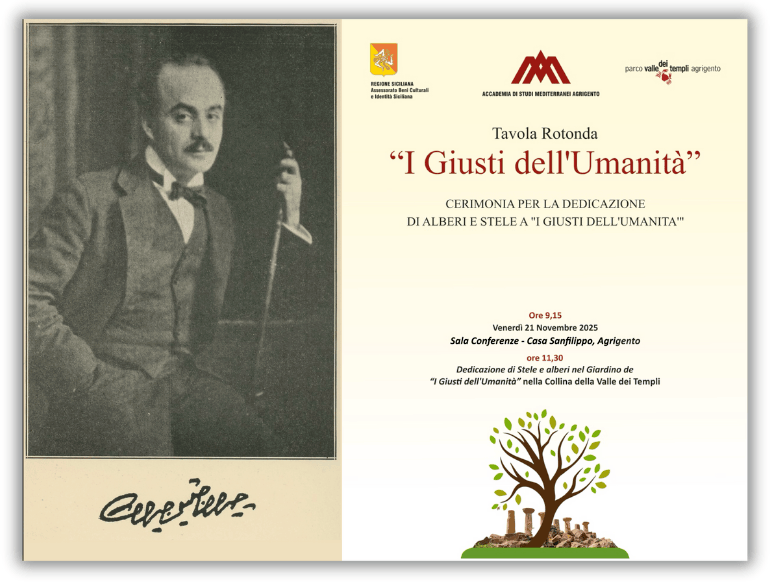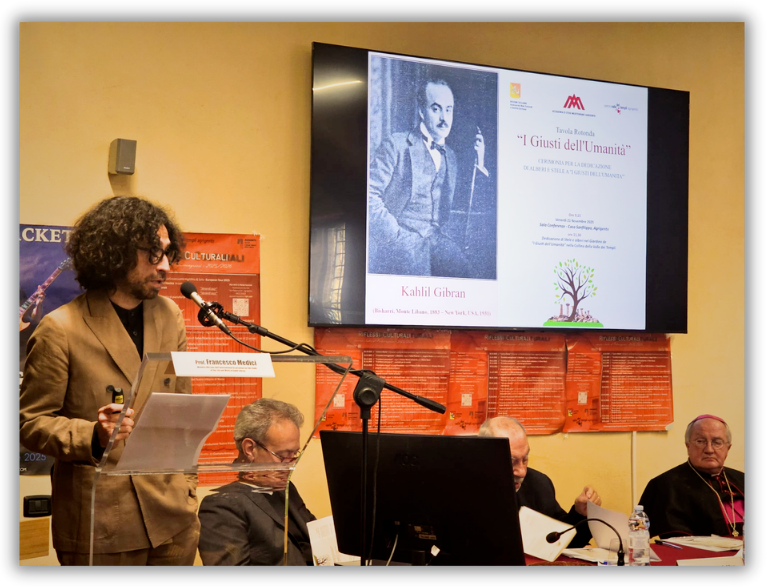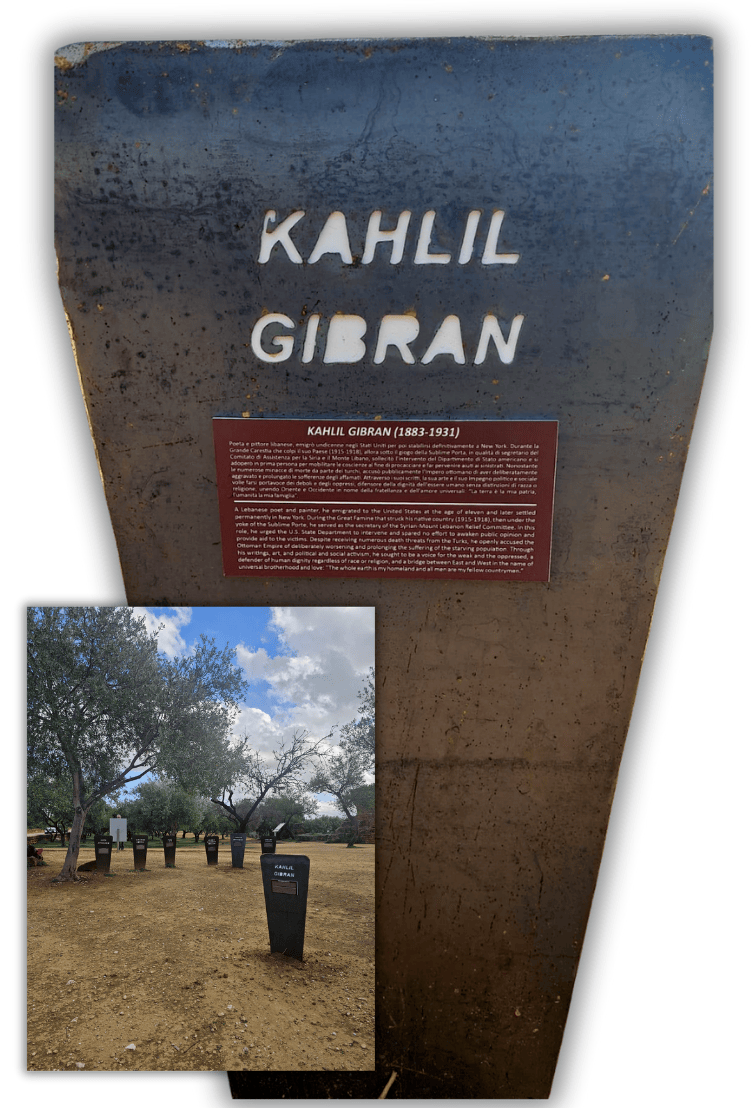-
-
-
-
Search
-
-
0
-
Shopping Cart
xProducts:0Cart Empty
-
By Glen Kalem-Habib
All rights reserved © copyright 2025
There are many monuments and plaques around the world dedicated to Kahlil Gibran, but they commemorate him exclusively as a great Arab-American writer and artist. On the morning of November 21, 2025, for the first time ever, a stele was dedicated to him as a “Righteous of Humanity,” in recognition of a lesser-known aspect of his life: his political engagement during the years of the Great Famine in his homeland, as secretary of the Syrian-Mount Lebanon Relief Committee, founded in New York in 1916 by a group of distinguished Syrian-Lebanese residents in the United States.

The solemn event, organized by the Academy of Mediterranean Studies (Accademia di Studi Mediterranei), took place in Agrigento, Sicily, Italy. Before numerous prominent civil, religious, and military authorities, the Italian scholar Francesco Medici – who recently discovered unpublished documents attesting to Gibran’s political role during World War I (writings, letters, and public interventions in which he denounced the oppression and violence suffered by Middle Eastern peoples under the Ottoman yoke) – presented to the public the reasons for conferring such an important honor upon him, namely his personal contribution to alleviating the suffering of the starving populations of the Levant. The Kahlil Gibran Collective had already published, on April 21, 2014, an extensive article by Medici on the subject, entitled “Kahlil Gibran and the Great Famine of Mt. Lebanon.” [https://www.kahlilgibran.com/latest/149-kahlil-gibran-and-the-great-famine-of-mt-lebanon-unpublished-documents.html].


The commemorative stele was then unveiled in the Garden of the Righteous of the World, located in the famous Valley of the Temples, a UNESCO World Heritage Site and millennia-old symbol of Mediterranean civilization. The Garden is dedicated to those who, through courage and dedication, have contributed to the defense of human dignity. The inscription on the stele, written in both Italian and English, reads:
“Kahlil Gibran (1883-1931)
Poeta e pittore libanese, emigrò undicenne negli Stati Uniti per poi stabilirsi definitivamente a New York. Durante la Grande Carestia che colpì il suo Paese (1915-1918), allora sotto il giogo della Sublime Porta, in qualità di segretario del Comitato di Assistenza per la Siria e il Monte Libano, sollecitò l’intervento del Dipartimento di Stato americano e si adoperò in prima persona per mobilitare le coscienze al fine di procacciare e far pervenire aiuti ai sinistrati. Nonostante le numerose minacce di morte da parte dei turchi, accusò pubblicamente l’Impero ottomano di aver deliberatamente aggravato e prolungato le sofferenze degli affamati. Attraverso i suoi scritti, la sua arte e il suo impegno politico e sociale volle farsi portavoce dei deboli e degli oppressi, difensore della dignità dell’essere umano senza distinzioni di razza o religione, unendo Oriente e Occidente in nome della fratellanza e dell’amore universali: ‘La terra è la mia patria, l’umanità la mia famiglia’”.
“Kahlil Gibran (1883-1931)
A Lebanese poet and painter, he emigrated to the United States at the age of eleven and later settled permanently in New York. During the Great Famine that struck his native country (1915-1918), then under the yoke of the Sublime Porte, he served as the secretary of the Syrian-Mount Lebanon Relief Committee. In this role, he urged the U.S. State Department to intervene and spared no effort to awaken public opinion and provide aid to the victims. Despite receiving numerous death threats from the Turks, he openly accused the Ottoman Empire of deliberately worsening and prolonging the suffering of the starving population. Through his writings, art, and political and social activism, he sought to be a voice for the weak and the oppressed, a defender of human dignity regardless of race or religion, and a bridge between East and West in the name of universal brotherhood and love: ‘The whole earth is my homeland and all men are my fellow countrymen’.”
This prestigious title of “Righteous of Humanity,” although conferred posthumously, helps restore completeness to Gibran’s legacy by acknowledging his moral heritage and humanitarian vision.